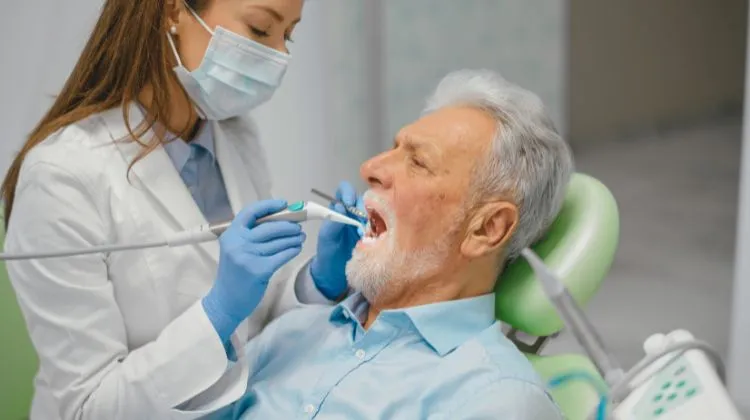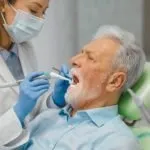For many veterans, returning home often presents a unique set of challenges. Access to adequate healthcare, particularly dental care, is a significant concern for numerous former service members. The HR 210 Dental Care for Veterans Act seeks to address this, aiming to bridge a critical gap in the current system.
The issue of dental care for veterans isn’t a recent development, but this legislation, known as the HR 210 Dental Care for Veterans Act, offers a potential solution. This overview will provide essential details and insights relevant to veterans, military families, and activities on Capitol Hill. The bill’s primary goal is to broaden the range of dental services accessible through the Department of Veterans Affairs (VA).
Table of Contents:
- Understanding the Current Landscape of Veteran Dental Care
- The Specifics of HR 210 Dental Care for Veterans Act
- Supporters of HR 210
- What the Future Might Look Like for Dental Care
- How HR 210 Impacts Families
- The Importance of Staying Informed
- HR 210’s Bigger Picture
- FAQs about HR 210 Dental Care for Veterans Act
- Conclusion
Understanding the Current Landscape of Veteran Dental Care
Currently, the VA’s dental coverage adheres to strict criteria. Consequently, many veterans find themselves ineligible for dental benefits, potentially leaving them stranded when in need of dental care. The absence of regular check-ups can exacerbate minor issues into significant problems.
This often compels veterans to explore alternative options. These may include private insurance or community programs, yielding mixed results. The process is often complex and far from easy.
What HR 210 Proposes to Change
HR 210, sponsored by Rep. Julia Brownley, aims to broaden dental care access. This expansion would encompass all veterans enrolled in the VA healthcare system. It marks a step towards acknowledging dental health as integral, rather than separate, from overall physical well-being.
The bill, formally titled the Dental Care for Veterans Act, was introduced in the House on January 6, 2025. It was then referred to the House Committee on Veterans’ Affairs. Subsequently, it underwent further review by the Subcommittee on Health on February 6, 2025, as documented on congress.gov.
The Specifics of HR 210 Dental Care for Veterans Act
The proposed legislation envisions the VA providing dental care in a manner similar to its provision of other medical services. This could encompass preventive care, restorative treatments, and other specialized services. A medical center would ideally treat the Veteran holistically.
The core principle of HR 210 lies in its phased approach to eligibility. It prioritizes veterans in higher priority groups, typically those with service-connected disabilities or specific health conditions, according to a post by DAV on Threads. Subsequently, the scope gradually expands.
A Four-Year Plan to Implementation
The bill outlines a four-year timeline. It commences with veterans facing the most pressing service-related needs, such as a dental issue arising from combat injury.
The legislation also proposes a thorough analysis of data and resources throughout the implementation process. This includes a detailed budget to facilitate congressional oversight and tracking of progress. The privacy policy surrounding any data collected is paramount.
Supporters of HR 210
HR 210 has received endorsement from various veterans’ groups, including the Disabled American Veterans (DAV). Additionally, it boasts numerous co-sponsors in the House, such as Representatives Sean Casten, Gwen Moore, and Steve Cohen, among others, as detailed by FastDemocracy.
These organizations and individuals emphasize that adequate dental care transcends mere hygiene. It is critical for maintaining overall health.
Potential Impact of the Bill
The potential benefits for veterans are clear: improved oral health and, consequently, better overall health outcomes. The bill aims to help veterans recover their overall well being.
It aims to simplify the process, potentially eliminating obstacles and reducing the administrative burden many veterans currently face. The goal is to get our heroes back to living productive lives and enjoying the American dream.
Different Perspectives on Dental Care
While the bill enjoys broad support, diverse viewpoints exist. For example, not everyone is in agreement with how to go about securing full funding.
Some veterans’ groups advocate for prioritizing those with the most urgent needs or service-connected injuries. There are still details to be worked out as all sides come together for a resolution.
What the Future Might Look Like for Dental Care
If this legislation passes Congress, the changes would manifest on multiple levels. The direct impact would include improved health outcomes for veterans. This will enable them to be more present parents and active members of their communities.
There would also be a broader systemic shift, steering healthcare and support for veterans towards a more holistic model.
Budget Concerns
This bill necessitates a significant financial commitment to facilitate comprehensive dental care.
Establishing well-equipped dental clinics involves expenses. However, these could potentially be offset by long-term savings. Regular dental visits could reduce the need for expensive urgent care interventions.
How HR 210 Impacts Families
Veterans are not always the only ones facing challenges in accessing benefits. Spouses often times have to figure it all out alone while their loved one is serving.
HR 210 indirectly addresses the dental needs of families as well. Reduced financial strain and the positive influence on overall household well-being are significant factors. The family unit as a whole is stronger with healthier parents.
The Real Life Effects
Consider a hypothetical veteran, Alex, who completed two tours overseas and returned with chronic health issues but was initially ineligible for VA dental benefits. Without regular dental care, minor problems escalated into severe, painful conditions. This impacted Alex’s employment prospects.
Stories like Alex’s illustrate the direct human impact of legislation like HR 210. This bill has the potential to create a ripple effect, positively affecting families, communities, and American society at large. It can get the Veteran back into being active in things like their local church and community.
The Importance of Staying Informed
Keeping up with the bill’s progress and regularly consulting relevant resources is essential. For instance, official legislative tracking websites, such as congress.gov, provide up-to-date information. Reviewing main content sources regularly helps you to stay informed.
HR 210’s Bigger Picture
This proposal transcends mere policy adjustments. The HR 210 Dental Care for Veterans Act promotes a broader perspective. How is “care” itself defined?
Engaging in discussions about HR 210’s approach encourages society as a whole to acknowledge the ongoing responsibilities of healthcare for service members and their families. This brings about questions such as is our local VA medical facilities doing enough. Also, are the local and state goverments doing enough for our veterans.
FAQs about HR 210 Dental Care for Veterans Act
Who qualifies for dental care through the VA?
Currently, the VA offers dental care to veterans meeting specific criteria. This typically includes having a service-connected dental disability or being a former prisoner of war. The eligibility requirements are relatively strict, resulting in many veterans being excluded from VA dental benefits.
| Eligibility Criteria for VA Dental Care | Covered by the VA? |
|---|---|
| Veterans with service-connected dental disabilities | Yes |
| Former prisoners of war | Yes |
| Veterans without service-connected dental disabilities | Generally, No |
Is there a grant for veterans for dental work?
Various programs and grants at the state and local levels may offer financial aid to veterans for dental work. However, a single, nationwide grant specifically dedicated to this purpose does not currently exist. The availability and eligibility criteria for these programs vary significantly.
It depends on location and the specific organization offering assistance. Check with your local veterans affairs office to learn more.
Do spouses of 100% disabled veterans get dental benefits?
Generally, spouses of 100% disabled veterans do not automatically receive dental benefits through the VA. The Civilian Health and Medical Program of the Department of Veterans Affairs (CHAMPVA) provides healthcare coverage to eligible beneficiaries, including spouses.
However, dental care is not typically included unless certain additional requirements are met. Check with the VA medical center in your area to learn more.
Can you get VA compensation for dental?
Yes, veterans can receive VA compensation for dental conditions or disabilities deemed service-connected. The VA determines disability ratings based on the severity of the condition.
This rating corresponds to a monthly payment. Speak with a qualified representative within veterans affairs for additional information.
Conclusion
The proposed changes under HR 210, the Dental Care for Veterans Act, signify a substantial shift in the United States’ approach to veteran healthcare. By improving access to essential services, the nation will improve the lives of those that have sacrificed greatly.
Staying informed about legislative developments and related regulations is crucial. These are things that effect all citizens.




more info [email protected]
George L Colley
July 4, 2025 @ 2:11 pm
I am 100 % disabled. I was denied dental service and other medical treatment. I had to seek outside medical treatment. I have been diagnosed with prostate issues, and all my treatment is from outside Doctors. I now have to use all my VA pension for outside treatment. I have filed a claim with the VA, and I am waiting to go before the review board.
I am a veteran and I don’t receive anything for Dental I have to pay $66 dollars a month from my retirement check to get 20% off of dental Care and have Trycareforlife for health don’t understand why we don’t receive other help .Don’t use Va as have had bad service so I go outside to Doctors and receive my Medications at Military Bases the Same with ID cards . And now with VA losing personnel and cuts it is better to get used to being treated by the private sector .I believe 99% of veterans have PTSD but don’t want to Admit it And now we hail a person that has never served in the Military but we will waste $45million on a military Parade for his Birthday and our Veterans are left out of the loop.
As a 100% disabled veteran i can tell u it takes at least 2 months to get an appointment and another couple of months for a second appointment, this is not the Dentists fault they are just shorthanded. If u have a dental emergency you have to go to an outside dentist where u have to pay usually by credit card i had to go into debt it cost me over 6000 dollars. The moral of the story they need many more dentists.
Have you tried getting them to move you to Community care for a dentist? It would allow you to see a civilian dentist and the VA pays for it. I use mostly community care for all my needs and I’m a 100% disabled veteran.
Sir /Madam,
I am in need of dental care, I have two broken molars ( upper right ) approximately 1/3 of one of the molars has broken completely off. The molar directly to the rear of the aforementioned tooth
Has a large filling that has fractured completely and has a chunk of the tooth broken off.
I am a Veteran
Lance/Corporal USMC Honorably Discharged.
1980 – 1983 Active Duty 1983 – 1986 IRR
I have been told that my dental coverage is
For Emergency Triage
Extraction only.
I can’t afford to loose these teeth.
I have looked into private dental insurance, and was told by a DMD that these molars are going to require crowns. The price tag for this work is 2,500.00 for each tooth. This is out of my range. Financially not feasible.
If you’re able to provide me with the dental work needed for a lesser price tag I would be ever so grateful. Thankyou in advance, Anthony John Moore. 557-13-7227